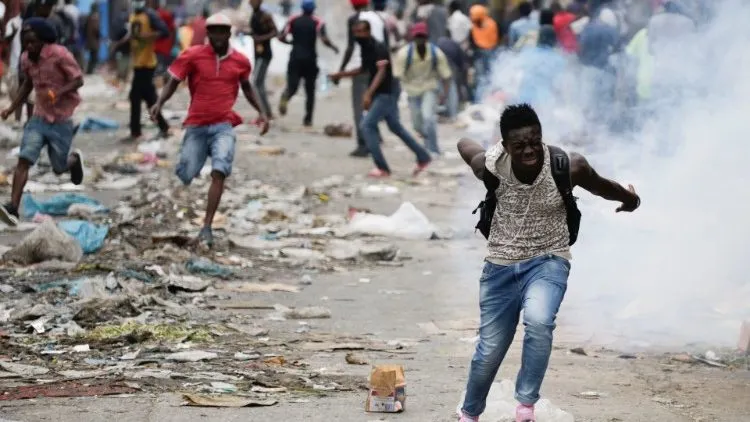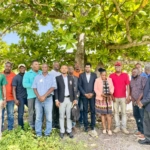In response to the escalating security crisis in Haiti, the Trump administration is preparing to present a crucial proposal to the United Nations Security Council. This initiative aims to establish an international security mission in the country.
The situation has reached critical levels, with criminal organizations currently controlling approximately 80% of Haitian territory. This information was reported by the Jamaica Observer, citing statements from U.S. Secretary of State Marco Rubio.
In this climate of extreme tension, Jimmy Chérizier, known as “Barbecue” and leader of one of the largest gang coalitions, has issued an ultimatum to the provisional government. The leader of the “Viv Ansanm” alliance openly threatens to overthrow the authorities if the transitional Presidential Council refuses to relinquish power.
“Haiti has reached a turning point where it can no longer hold. The country has reached a state of total anarchy,” he declared in a video reported by the Jamaica Observer. His message concluded with a rallying call: “Haitian people, join us in the battle. Freedom or death.”
For this American initiative to succeed, it is crucial that China and Russia, permanent members of the Security Council, do not exercise their veto power, according to the Jamaica Observer. These two nations, typically resistant to international interventions under UN authority, must either approve or abstain.
The primary objective of this mission would be to neutralize the armed groups that have seized control of vast areas of the country. Washington views this intervention as an essential step to restore a semblance of stability in Haiti.
According to a recent report from the United Nations Integrated Office in Haiti (BINUH), cited by the Jamaica Observer, violence has reached alarming levels with 1,520 people killed and 609 others injured during the last quarter. This dramatic escalation primarily results from conflicts between rival gangs, arbitrary executions, and attacks against the civilian population.
Among these criminal groups, “Viv Ansanm” stands out as one of the most influential organizations, being involved in most criminal acts, including assassinations, rapes, torture, and kidnappings that plague the country.
In his statements to the Jamaica Observer, U.S. Secretary of State Marco Rubio expressed his concern about the situation in Haiti and its repercussions on the region. He particularly highlighted the migration challenge facing the United States, with “a constant flow of illegal migrants” from Haiti, as well as the emergence of American territory as “a hub for illicit activities related to drug trafficking, illegal arms trade, and smuggling.”
According to Rubio, the Trump administration has “analyzed various variables” to resolve the political crisis that has “placed Haiti in the hands of criminal organizations.”
The U.S. chief diplomat emphasizes the necessity of a multilateral intervention under United Nations authority. “The UN is the only solution to Haiti’s social and political situation, which deteriorates daily,” he told the Jamaica Observer.
This call for international intervention comes after the failure of several bilateral and regional attempts to contain the expansion of criminal networks.
However, the American project must overcome significant diplomatic obstacles. Russia and China, permanent members of the Security Council, have historically expressed their opposition to UN missions involving substantial security reinforcement. Their position will be crucial in upcoming discussions regarding this proposal.
The potential adoption of the resolution would allow for the deployment of a security mission with a precise mandate, focused on restoring order and eliminating armed groups. This American initiative aims to establish an environment conducive to rebuilding democratic institutions and restoring social peace.
The worsening of the Haitian crisis is generating significant consequences throughout the region. Neighboring nations, already grappling with uncontrolled migratory movements, fear implications for their national security and the development of cross-border criminal networks.
According to the Jamaica Observer, the U.S. administration believes that the persistent instability in Port-au-Prince risks intensifying arms and drug trafficking in the Caribbean zone, as well as illegal activities directed toward American territory and neighboring islands.
Currently, the international community remains divided on the intervention strategy to adopt in Haiti. Nevertheless, for Washington, the priority is clear: obtain Security Council authorization to deploy a multinational force under UN leadership, capable of regaining control of a territory largely dominated by gangs.
https://ctninfo.com/?p=36137&preview=true
Source: www.jamaicaobserver.com







